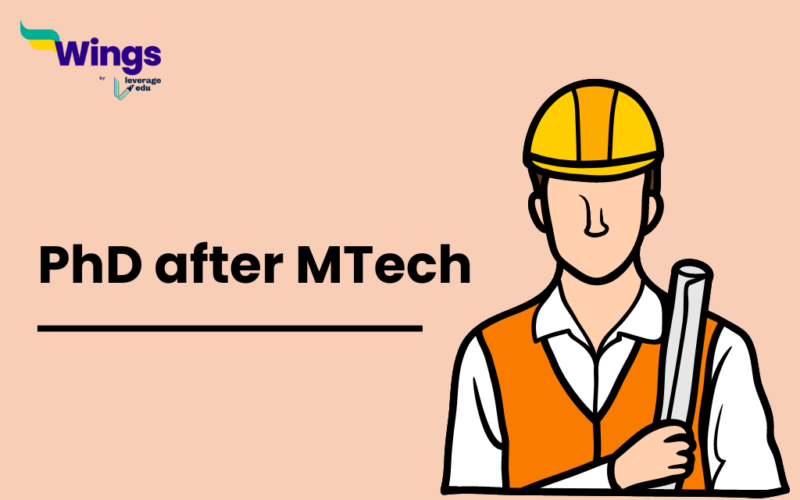

PhD right after B.E./B.Tech/BSc vs MSc/MS
- July 28, 2023

Surendra Padamata
Many people out there have this question in their mind as to whether one can do a PhD in physics right after their engineering degree, is it possible, how to go about it, is it a viable option compared to MSc and lot more. I hope to clear some of those concerns here in this article. I hope you enjoy reading it and find it useful and informative, 1,2.3..initiate!
Disclaimer: This article also applies to people who recently did their or are doing BSc in physics. Please kindly note, this is my point of view that I formed, after my recent experiences and journey going from B.E Mechanical and minor in physics to PhD in physics.
PhD after B.E./B.Tech:
Yes! One can do a PhD in physics right after your engineering degree. You see most universities in US, Canada and very few in Europe, UK, Australia and Japan have 1-2 years of coursework during their 5-6 year PhD typically. In India, the topics that are usually taught in our class 11 and 12 and introductory physics in the first year of undergraduate degree are mostly equivalent to BSc Physics degrees in the above countries I mentioned. So it won’t be huge leap into a completely new world which you can’t get comfortable with.
But to get admitted and aim for good universities with a great professor working in your field of interest and obtain good funding (which is approximately, 1500$ USD per month after taxes and can save at least 600-700$ USD per month after expenses), one need to either start collaborating and working with on campus physics professors or if it’s a purely engineering college, do take a gap year and obtain a research position, get experience(it’s strongly advicable for the former scenario too), reference letters and then apply to the universities. More on the applications, please refer to my other article , which has a link to a nice video too on a talk that I gave to my alumnus institute, BITS Goa, juniors.
Next, on various eligibility requirements and some potential draw back taking this route, in US universities, you can directly apply as I said in the above paragraph but in most European and few Canadian universities, where professors admit you rather than the physics department as a whole, they strictly require an MSc in physics(on a personal note, I couldn’t get into Perimeter, Max Planck because not having an MSc degree), so if you are fine with joining US universities and fine with letting go few very great potential opportunities, then yeah PhD is the right way to go about.
Compared to MSc/MS:
The other route one can take is, MSc/MS and then PhD, the advantages would be, it would increase your chances in getting admitted to great universities with great programs, you can choose to not to do the some of the basic courses in your first 1-2 years of PhD and use that extra time to do more research and potentially graduating in 4 yrs in US and Canada and may be also publish more research papers and journal articles, which could help in your future hunt on post-doctoral positions (but please take the second point with a pinch a salt as some universities don’t let you skip the basic courses during the first 1-2 yrs of your PhD and it depends on the personal capabilities of doing quick and effective research to be able to do produce quality and quantity of papers). PhD would also be an obvious economically viable option, as you are guaranteed of being paid unlike MSc/MS where very few places pay and in limited amount and numbers.
But an MSc/MS will also help opening a lot of great and decent opportunities in EU, UK, Australia and Japan! Also it’s best you do an MSc/MS when you don’t know your area of interest, as PhD can sometimes be very specific and ask for your specific interests and while admitting, they see if you have any previous research experience in that field.
Disadvantages would be potentially wasting money (especially MS, I agree some EU universities have no fee but they don’t fund your living costs which amounts to be expensive) and time (because mostly you might have to re-do courses during your first 1-2 yrs of PhD) while doing it, where it can be spent doing a 1 year research assistant-ship and then applying for PhD directly.
Conclusion:
Who should go for phd directly:.
If you believe your fundamentals in physics are strong or at least decent, have figured out your area of interest and have enough research experience(if you are doubtful about it, then talk to your seniors who have gone to do PhD in physics or post it on the Facebook groups like MS in US/blogs etc like physics after engineering, by sharing your profile) and also have financial concerns, but remember you might have to take a 1 year gap, where in you would get paid very little to none, but if you work hard, it will pay up later due to great amount of funding in US, EU, UK, Australia, Canada and Japan.
Who should go for MSc/MS:
Very new to physics, not clear about your research interests, don’t want to miss out on potential places like Perimeter, Max Planck and many other great EU places, have the financial back up, want to increase your chances of being admitted to top schools in physics, then go for it!
Thank you making it to the end, hope this article helps you make your decision and was fun to read, as always if still something is not clear please do refer to other articles and FAQ on the physics after engineering blog and if still not clear you can always email me.
I am always happy to talk to physics enthusiasts and wanna be’s, help clear questions/concerns you may have and also open to talk and discuss about physics in general, philosophy, anime and my research area gravity and specifically computational and theoretical astrophysics.
Leave a Comment Cancel Reply
Your email address will not be published. Required fields are marked *
Save my name, email, and website in this browser for the next time I comment.
Profession or Passion; My Journey of Self-Discovery
Some elements may be stressful for some people. I am neither exaggerating nor creating things. That’s what happened to me. Journey to IISER The 2020 IAT (IISER Aptitude Test) was

Cracking the JAM: A Comprehensive Guide to Effective Exam Prep
Introduction “In science, the credit goes to the man who convinces the world, not to whom the idea first occurs”. I’m referring to this quote here because I feel it
Applying abroad for a PhD in Physics
Hi! My name is Surendra Padamata, a recent B.E. Mechanical and Physics minor undergraduate from BITS Pilani K.K. Birla Goa Campus, India. I am currently working at ICTS-TIFR and IGC,
Prologue: Many people out there have this question in their mind as to whether one can do a PhD in physics right after their engineering degree, is it possible, how

Online resources for Astronomy/Astrophysics/Cosmology
Authors Shruti Pandharipande Rimsha Arif Organizations website International NASA’s website is a great resource for news and information about current and upcoming space missions, as well as a wealth of

Medicine or Natural Science in Biology? Differentiating between a MBBS degree and B.Sc/ BS degree
Basic Idea The first point of differentiating between these fields would be to understand the basic idea of them. Biological sciences is a branch of natural sciences that involves studying

Physics Conferences/Seminar International and Indian
This Blog is written by- Shruti Pandharipande an enthusiastic and motivated undergraduate physics student. Her interests are piqued by astronomy, astrophysics, and particle physics. She is a firm believer in

Preparation for DSE – Sanchit Singhal
Note: This post caters only to the preparation of DSE Probability A list of topics you must know is Permutation & Combinations, Conditional probability which includes the gambler ruin problem,

Travelling Europe for a Master’s Degree: The Erasmus Mundus Scholarship
Interviewee – Sailee Pradeep Sakhalkar Interviewed by Damayanti Dasgupta Transcribed by Nandini Sinhal Formatted by Sandhya Sathiaseelan 1. Why is this Erasmus Mundus Scholarship considered important and who can apply for
Socialise with

45,000+ students realised their study abroad dream with us. Take the first step today
Here’s your new year gift, one app for all your, study abroad needs, start your journey, track your progress, grow with the community and so much more.

Verification Code
An OTP has been sent to your registered mobile no. Please verify

Thanks for your comment !
Our team will review it before it's shown to our readers.

PhD after MTech

- Updated on
- June 28, 2024

It is common knowledge today that engineering is a vast field, open to lots of opportunities and serves as a base for good career growth. While we often discuss the prospects of an MBA , master’s degree, a job or entrepreneurship, another available potential and an interesting one at that, is the research field.
Although it is safe to assume that a PhD after MTech will not restrict one’s career options to just research or teaching in a technical capacity, it will also broaden the career opportunities for the person. One only stands to gain more detailed knowledge through a PhD after MTech, in the subject of one’s choice.
This Blog Includes:
What after mtech , what after mtech: opportunities & careers, phd after mtech, top universities, how to apply for a phd after mtech, specialisations in phd after mtech.
Just like the question of What Next After BTech rings a bell in the heads of undergraduate Engineering students, What are the opportunities after MTech? is yet another one that stands in line to pop after another two years. There is a multitude of career pathways one can take up after completing the Mtech degree.
One of the many opportunities that await these graduates is signing up for a doctoral degree. If you are interested in making a career in academics, then PhD after Mtech is a perfect fit for you! Pursuing courses from universities abroad can take you to places ranging from excellent research exposure to greater employment chances.
Let us discover some opportunities courses to answer the crucial question, What after MTech from the following career options:
Doctorate Degree
If you have always been wanting to explore the domain of research and development, then opting for a PhD after MTech is the ideal path to follow. By pursuing a PhD, you can avail the opportunity to explore the dimension of technical research.
One may apply for a doctoral program in India as well as universities abroad. Foreign universities provide excellent exposure and mentorship to such students. Apart from broadening the horizons, international universities also provide financial aid to meritorious students easing the burden of finances.
Entrepreneurship
Since an MTech can equip you with a specialised degree in hand, opening your own tech startup is another great option you can consider. The most essential thing you need to become an entrepreneur is a revolutionary idea, be it from any field of IT or engineering.
Further, you can pitch your idea to potential investors and gain the funding you require to build it. In the digital age, the advent of startups has potentially boosted with more and more rising in the domain of Information Technology and Artificial Engineering.
Thus, beginning something on your own in contemporary times is full of risks, but can also bring you innumerable benefits as well as letting you avail the scope of innovation.
Corporate Jobs
A prominent alternative for those planning to discover professional prospects after MTech, the corporate sector also awaits you with many shimmering opportunities. There are varied companies that are always on the lookout for technology specialists and engineers, subject-matter experts, software engineers, IT professionals, and PHP developers, amongst others which you can choose from.
If you plan to build your career in academia, then MTech can help you qualify for many teaching positions though you will need to appear for exams. In India, UGC-NET is the essential exam that academic institutions require for the profile of a lecturer. Further, with a master’s degree, one can only start from the position of an assistant professor and later with a PhD after MTech, you will have the necessary qualifications to take up the role of a professor.
Also Read: How to Become a Professor?
Generally, the duration of PhD after MTech can be 5 to 6 years, depending on the subjects picked by the student. As is often the case, most students prefer to pause their education after the master’s degree and step into the job market, either through hiring exams, on-campus placements or with their entrepreneurial dreams. Now the scenario has changed.
Students chose to explore the horizon because education is not restricted by time, conservative views or lack of opportunities. Now, research is a huge field to step into with good prospects and financial gains to look forward to.
With detailed and more precise knowledge through a PhD after MTech, students more often than not, prefer to work for R&D departments of government or private companies. Apart from that, there is a good chance to pave one’s way into the teaching profession after a PhD. A professor or teacher at a good institution is a rather exciting prospect to consider.
Also, let us not forget the huge opportunities that will appear in the form of other jobs in the corporate world or the public sector. Although it may seem like an ardent and tedious journey to undertake, a PhD after MTech is rather a fulfilling and rewarding experience. Explore differed PhD courses after that can be done after Mtech in the table given below:
While selecting the right specialization is an important part of a PhD after MTech, the selection of the college is an extremely important part of the decision. Not just for a good mentor, who is your mentor throughout the program, but also for the study environment is an important aspect.
Since the degree is completed after a span of five to six years, it is important to check the labs and course materials offered by the college for the doctoral degree. Most of the time is spent in the lab researching, hence the equipment and tools should be proper and accurate to assist the doctorate students.
Here is a list of a few of the top colleges offering good PhD programs across the globe;
- Stanford University , USA
- Harvard University, USA
- Massachusetts Institute of Technology, USA
- University of Cambridge , UK
- University of California , USA
Also Read: PhD in Australia
While planning to study PhD after MTech in India or abroad, there are certain things you need to keep in mind for your application. Here are the major eligibility criteria for studying PhD in India after MTech:
- The duration of PhD after MTech in India is around 3 to 5 years depending on your specialisation and university.
- GATE scores are essentially required for a doctoral degree after MTech especially if you are applying for PhD in IITs and NITs.
- Some Indian universities and institutes have their own PhD entrance exam which you will have to clear for admission.
- Academic transcripts of bachelor’s and master’s degrees.
- Research proposal
- You can also apply for PhD scholarships in India and many universities also offer fellowships to PhD candidates.
Here’s how you can apply for PhD abroad after MTech:
- To apply for any university abroad for PhD after MTech, you will have to provide GRE scores along with English language proficiency scores of IELTS / TOEFL / PTE , etc.
- Universities abroad also require a research proposal, an SOP and LORs for PhD programs.
- If you want to study PhD after MTech without GATE , then applying for your PhD abroad is the best option as there are many foreign universities which might not also require GRE scores as well.
There are several branches of PhD that are offered to students pursuing it after an MTech. Some of them are:
- PhD in Engineering
- PhD in Electrical Engineering
- PhD in Civil Engineering
- Fluid mechanics, Turbomachinery and Energy Fluid
- Material, Mechanics, and Design
- Information Engineering
- Management and Manufacturing
- Graphene Technology
- Mechanical Engineering
- Robotics Engineering
- Artificial Intelligence
- Computer Engineering
Also Read: PhD in Germany
Ans. A student has various opportunities and careers after Mtech ranging from professional to academic. A Doctoral Degree like PhD is a great choice after MTech for candidates who are good at academics and plan to sign up for a profession in the same field. PhD courses can be done from India as well as abroad, depending on the funds and scholarships available.
Ans. The duration of a PhD can range from 4 to 5 years depending on the university and college a student wants to pick.
Ans. The opportunities after MTech are as follows: 1. Information Security 2. Electronics & Communication Engineering 3. VLSI 4. Computer Science & Engineering 5. Mechanical Engineering 6. Electrical and Electronics Engineering
Related Reads
We hope you have got all the essential information regarding the PhD after Mtech. If you want to study in one of the above-mentioned universities and take a giant career leap, contact Leverage Edu . Our experts will provide you with the best advice and help you reach a step closer to your dream.
Team Leverage Edu
Leave a Reply Cancel reply
Save my name, email, and website in this browser for the next time I comment.
Contact no. *
Thanks for sharing blog.
Thank you for the feedback! You can subscribe to our newsletter to get regular updates on trending courses and careers.

Leaving already?
8 Universities with higher ROI than IITs and IIMs
Grab this one-time opportunity to download this ebook
Connect With Us
45,000+ students realised their study abroad dream with us. take the first step today..

Resend OTP in

Need help with?
Study abroad.
UK, Canada, US & More
IELTS, GRE, GMAT & More
Scholarship, Loans & Forex
Country Preference
New Zealand
Which English test are you planning to take?
Which academic test are you planning to take.
Not Sure yet
When are you planning to take the exam?
Already booked my exam slot
Within 2 Months
Want to learn about the test
Which Degree do you wish to pursue?
When do you want to start studying abroad.
January 2025
September 2025
What is your budget to study abroad?

How would you describe this article ?
Please rate this article
We would like to hear more.

IMAGES
VIDEO
COMMENTS
⭐M.Tech in Quantum Computing at IISc & ... Prologue: Many people out there have this question in their mind as to whether one can do a PhD in physics right after their engineering degree, is it possible, how. Read More » Surendra Padamata . Astro. Online resources for Astronomy/Astrophysics/Cosmology .
In summary, applying for a PhD in Physics after obtaining a Master's degree typically involves several key steps: researching potential programs and faculty members, preparing a strong application that includes a statement of purpose, letters of recommendation, and a CV, and demonstrating research experience and academic achievements.
Can I pursue physics after *put any branch* engineering? These are some of the questions I used to ask 3 years ago. Back then, I couldn't find a clear answer. But if you are asking a similar question today, I have found an answer and it is a resounding YES!!! Yes, you can do physics after engineering, in fact, you can do a Ph.D. in physics ...
One can do a PhD in physics right after your engineering degree. You see most universities in US, Canada and very few in Europe, UK, Australia and Japan have 1-2 years of coursework during their 5-6 year PhD typically. In India, the topics that are usually taught in our class 11 and 12 and introductory physics in the first year of undergraduate ...
Yes, it is possible depending on the rules of the university. The university where I did my PhD allowed graduate students to add masters degree's within the same college. One person in my Physics PhD program took one CS class per semester for the duration of the PhD and completed the MS and PhD in the same semester.
If you want to do an integrated M.Sc + P.hd from a reputed institution like you have mentioned, you have to appear for JAM. But the way you are trying to get into M.Tech. takes a lot of time and persevarance. It will take 3+2+2 = 7 years to get your M.Tech., and if you somehow drop an year in between (various reasons can happen) it will take 8 ...
Essentially for the same reason: I was tired of theoretical and wanted to switch. I basically used the masters to catch-up which I recommend you do as well. Most PhD programs advise you to do the masters before the PhD anyway. And a lot don't even have a specific coursework requirement for the PhD program.
SL.NO. DEPARTMENT / CENTRE / UNIT Programme: BASIC QUALIFICATION FOR ELIGIBILITY: AREAS OF RESEARCH: 5. Molecular BiophysicsUnit Streams $:(a) Biological & Chemical Sciences(b) Physical & Chemical Sciences : Research (Ph D) Master's or equivalent degree in any branch of Sciences or Bachelor's degree in any branch of Medicine/ Engineering/ Technology/ Agriculture/ Veterinary Science/Pharmacy.
1. What after Mtech? Ans. A student has various opportunities and careers after Mtech ranging from professional to academic. A Doctoral Degree like PhD is a great choice after MTech for candidates who are good at academics and plan to sign up for a profession in the same field. PhD courses can be done from India as well as abroad, depending on the funds and scholarships available.
FAQs. Q: Can I pursue a PhD after MTech part-time? A: Part-time PhD programs are available at some universities, allowing working professionals to balance their research and career commitments. Q: How long does it take to complete a PhD after MTech? A: The duration of a PhD program varies, typically ranging from 3 to 5 years. It depends on factors such as research complexity, individual ...